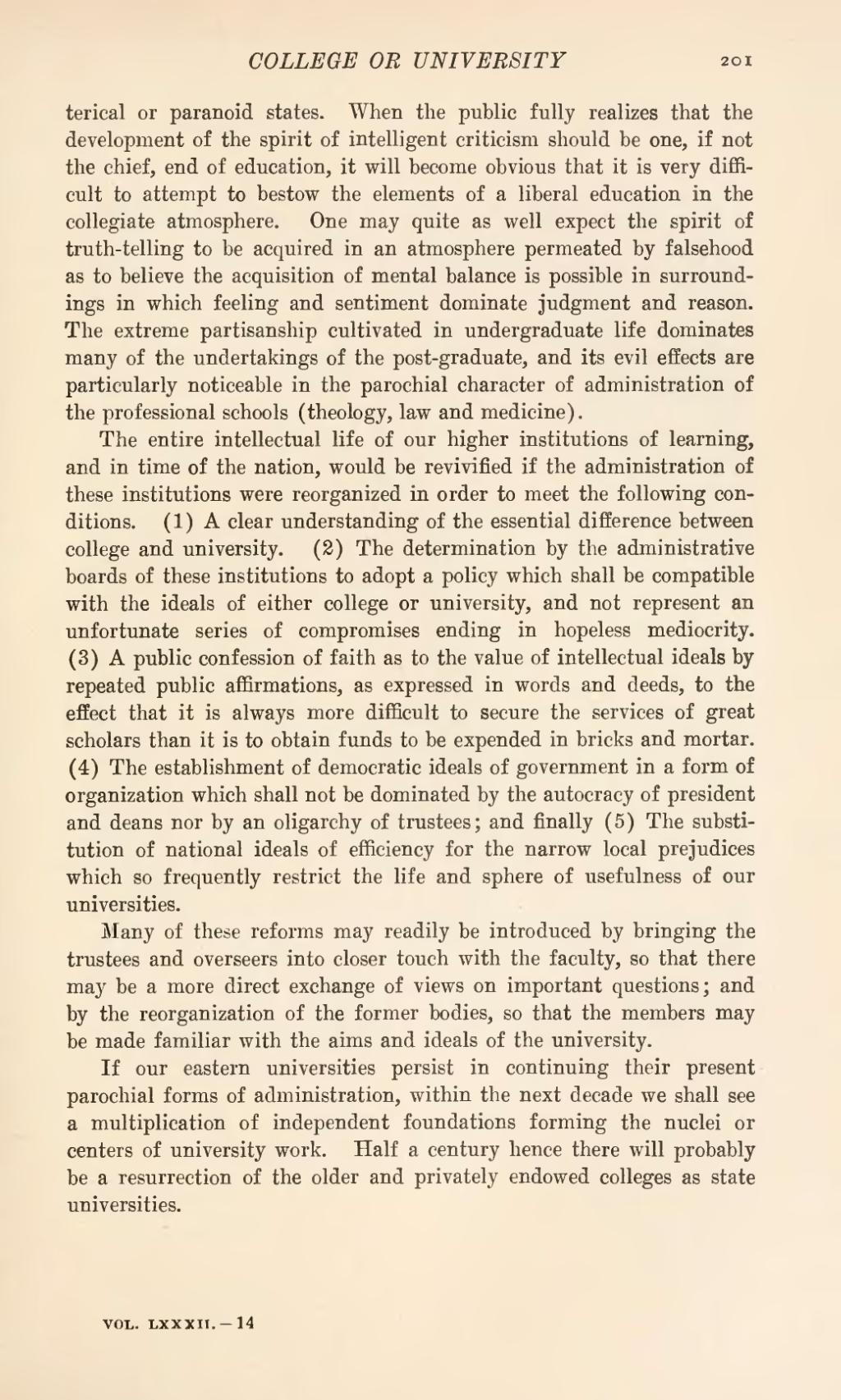terical or paranoid states. When the public fully realizes that the development of the spirit of intelligent criticism should be one, if not the chief, end of education, it will become obvious that it is very difficult to attempt to bestow the elements of a liberal education in the collegiate atmosphere. One may quite as well expect the spirit of truth-telling to be acquired in an atmosphere permeated by falsehood as to believe the acquisition of mental balance is possible in surroundings in which feeling and sentiment dominate judgment and reason. The extreme partisanship cultivated in undergraduate life dominates many of the undertakings of the post-graduate, and its evil effects are particularly noticeable in the parochial character of administration of the professional schools (theology, law and medicine).
The entire intellectual life of our higher institutions of learning, and in time of the nation, would be revivified if the administration of these institutions were reorganized in order to meet the following conditions. (1) A clear understanding of the essential difference between college and university. (2) The determination by the administrative boards of these institutions to adopt a policy which shall be compatible with the ideals of either college or university, and not represent an unfortunate series of compromises ending in hopeless mediocrity.
(3) A public confession of faith as to the value of intellectual ideals by repeated public affirmations, as expressed in words and deeds, to the effect that it is always more difficult to secure the services of great scholars than it is to obtain funds to be expended in bricks and mortar.
(4) The establishment of democratic ideals of government in a form of organization which shall not be dominated by the autocracy of president and deans nor by an oligarchy of trustees; and finally (5) The substitution of national ideals of efficiency for the narrow local prejudices which so frequently restrict the life and sphere of usefulness of our universities.
Many of these reforms may readily be introduced by bringing the trustees and overseers into closer touch with the faculty, so that there may be a more direct exchange of views on important questions; and by the reorganization of the former bodies, so that the members may be made familiar with the aims and ideals of the university.
If our eastern universities persist in continuing their present parochial forms of administration, within the next decade we shall see a multiplication of independent foundations forming the nuclei or centers of university work. Half a century hence there will probably be a resurrection of the older and privately endowed colleges as state universities.
